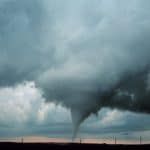The antisatellite test: A view from China
By Dingli Shen | February 11, 2007
While the world worries that China’s antisatellite test might spark an arms race in space, it’s more likely that the test was meant to send a message.
On January 11, China surprised the world by conducting an antisatellite (ASAT) test. Beijing
claims that it has no intention of engaging in an arms race in space and that this test was not
directed at any other country. But it’s hard to believe that the Chinese government conducted the
test solely for pride and excitement.
Upon closer inspection, it seems true that China isn’t interested in participating in an
arms race in space. First, considering any of the threats that Beijing might face, such an arms
race is something China cannot afford. Second, it would be silly for China to involve itself in an
all-out offense-offense space arms race because China doesn’t aspire to dominate the globe via
space. Besides, most of China’s threats come from within the country. Third, the ASAT test could
simply be a restrained reaction to ambitious U.S. plans for the militarization of space.
More than likely, China wanted the test to send a message. After all, China’s sovereignty
and security is at stake. China’s Taiwan might feel that the most opportune time to seek a
dangerous path by asserting its
de jure independence is during 2007-2008. The reason for the timing is simple–given the
doubling of mainland China’s economy every five years, soon Taipei will receive no realistic chance
to announce its legal separation from Beijing. But with Beijing hosting the Summer Olympics in 2008
and Shanghai holding the World Expo in 2010, the current Taiwanese leadership, who will step down
in May 2008, might view the next couple of years as the most strategically vulnerable time for the
mainland.
This might make Beijing eager to show off. The ASAT test is simply the most recent example
of this. Prior to the test, China presented its latest jetfighter (the J10) and announced its plan
to install the Beidou Satellite Navigation and Positioning System, which contains 35 satellites
(four of them already deployed). Beijing also let it be known that it would unveil more in the
future, in stark contrast to its usual modus operandi of maintaining a very low profile.
But despite the posturing, Beijing prefers to deal with Taiwan peacefully. This, however,
necessitates Taipei’s cooperation. And current Taiwanese leadership seems more interested in
pushing for independence and breaching the local law to which they’ve sworn to. The same goes for
Washington. Despite an official acceptance of Taiwan as a part of China, the United States still
considers it legitimate to sell weapons to Taiwan. President George W. Bush made that clear in
April 2001 when he said, “The United States will do whatever it takes to defend Taiwan.”
This kind of rhetoric violates international law and makes the United States less respected
as a world power. By defending Taiwan when it behaves irresponsibly, the U.S. government could
bring even more harm to itself. Against this backdrop, Beijing has launched a preventive effort to
raise the stakes. Apparently, the Chinese government firmly believes in the theory of deterrence
and possesses the resolve to use it.
Therefore, despite Beijing’s denials, the ASAT test was indeed politically timed and aimed
at a specific power. It might have created some debris that is not desirable during peace time, to
which I’m regretful, but that debris could prevent a more serious confrontation in the next couple
of years. And until an international ban on ASAT weapons exists–and up until this point, such
efforts have been fruitless–the sovereignty of all nations should be sufficiently respected.
Together, we make the world safer.
The Bulletin elevates expert voices above the noise. But as an independent nonprofit organization, our operations depend on the support of readers like you. Help us continue to deliver quality journalism that holds leaders accountable. Your support of our work at any level is important. In return, we promise our coverage will be understandable, influential, vigilant, solution-oriented, and fair-minded. Together we can make a difference.
Topics: Columnists














